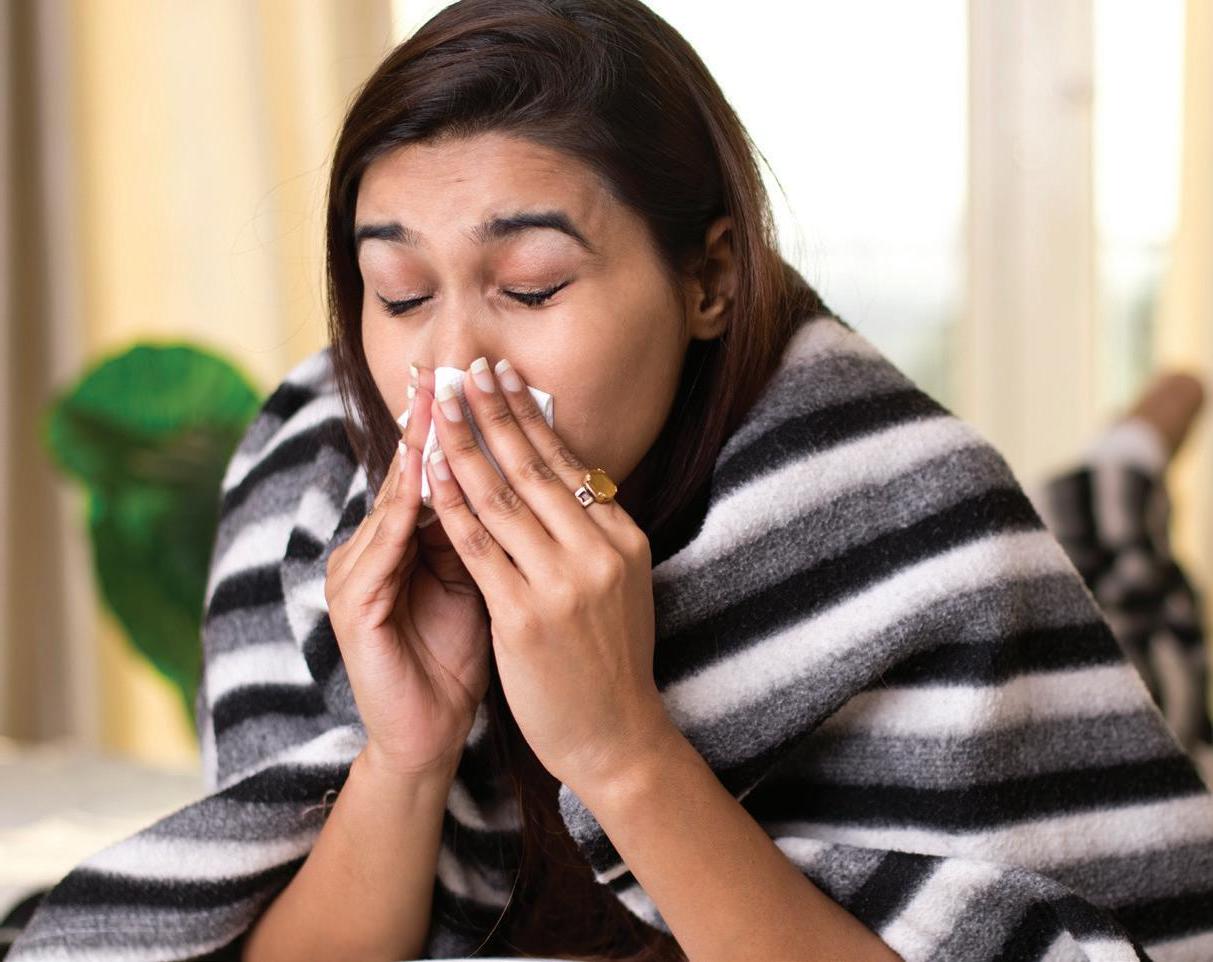
2 minute read
IS IT A COLD, FLU OR COVID-19? Help for
IS IT A COLD, FLU OR COVID-19?
THEY’RE ALL VIRAL, AND THEY SHARE SOME SYMPTOMS. HERE’S HELP WITH TELLING THE DIFFERENCE.
These days, symptoms of an upper respiratory infection— runny nose, sneezing, congestion—oft en trigg er worries that they might indicate COVID-19. “Call your primary care doctor and describe your symptoms to know what your next steps should be,” says Peter Q. Lee, DO, FACEP, Associate Chairman of Emergency Medicine at Jersey City Medical Center. “However, if you feel that your symptoms warrant a trip to the ED, by all means you should come in. Know that it is safe to come here, because we’ ve taken every precaution for the protection of our patients, visitors and staff .”
As with any fl u season, everyone over the age of 6 months should get the annual fl u vaccine, he says, and take precautions: “If we all practice social distancing, wear a mask and wash our hands, the spread of respiratory infection will be considerably limited this PETER Q. LEE, DO season.”
HOW IT SPREADS
KEY SYMPTOMS
COLD
Droplets expelled by coughing, sneezing or talking; touching a surface that has the virus on it

Mainly upper respiratory: nasal congestion, sore throat, headache, possibly mild cough
HOW IT’S DIAGNOSED
TREATMENT
RECOVERY TIME
No test; diagnosis based on symptoms

Bed rest; fl uids; over-the-counter medications such as decongestants, pain relievers and cough suppressants
A few days to two weeks
PREVENTIVE MEASURES

Wash hands frequently; don’t touch face; avoid close contact with infected persons.
FLU

Droplets expelled by coughing, sneezing or talking; touching a surface that has the virus on it

Fever, chills, muscle aches, exhaustion; runny nose, sore throat, headache; possible nausea, vomiting, diarrhea
Swab test performed by healthcare provider
Bed rest; fl uids; over-the-counter medications to relieve symptoms. In severe or high-risk cases, antiviral medications may be prescribed.
A few days to two weeks, if no complications, such as pneumonia, develop
Wash hands frequently; don’t touch face; avoid close contact with infected persons. Annual fl u vaccine is recommended for most people aged 6 months and older.
COVID-19

Droplets expelled by coughing, sneezing or talking; touching a surface that has the virus on it
A wide range, including fever, cough, shortness of breath; sometimes, lack of taste or smell, which may come on suddenly. Some people experience only a few of these symptoms, or none at all.
Usually swab or saliva test performed by healthcare provider
COVID-19 treatments are still in the development stage.
For mild cases, about two weeks; for more severe cases, six weeks or more, and hospitalization may be required.

Wash hands frequently; don’t touch face; wear mask; avoid crowds and maintain 6 feet of distance from other people outside your home; avoid close contact with infected persons.
Jersey City Medical Center has Emergency Departments at 355 Grand Street in Jersey City and at RWJBarnabas Health at Bayonne at 519 Broadway. In an emergency, call 911. To learn more, visit www.rwjbh.org/hudsoncounty.










